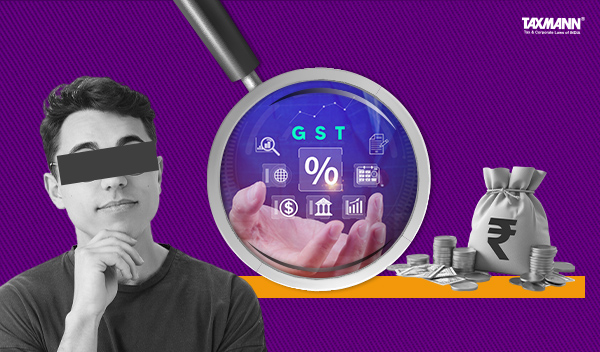[Opinion] Ongoing GST Compliance Issues Amidst Clarifications
- Blog|News|GST & Customs|
- 2 Min Read
- By Taxmann
- |
- Last Updated on 24 July, 2024

Maulik Manakiwala – [2024] 164 taxmann.com 494 (Article)
Since its implementation on 1 July 2017, GST aimed to simplify India’s indirect tax structure, which was previously burdened by multiple taxes. While GST implementation ushered in ‘One Nation-One Tax’, various challenges have emerged in interpretation and compliance. The GST Council has consistently endeavoured to resolve these challenges through continuous dialogue with the industry. The recent 53rd GST Council meeting on 22 June 2024 is a testament to these ongoing efforts. The Council discussed various sector-specific and general issues, with subsequent circulars issued aimed at clarifying uncertainties.
1. Ongoing compliance challenges in ITC
Despite the Council’s efforts to address industry concerns, complexities in compliance persist. On the contrary, the eagerness to simplify affairs has often led to complications and time-consuming procedures on a daily basis, thus increasing litigations. For instance, the recent requirement for CA certificates or self-certified undertakings for post-sale discount credit notes illustrates this challenge. The Central Board of Indirect Taxes & Customs (CBIC) has issued a Circular calling for these documents to substantiate that recipients have reduced the amount of Input Tax Credits (ITC) on account of the credit note issued by the supplier for post-sale discounts. Only if the supplier provides these documents, the credit note for the post-sale discount would be considered valid for adjustment from tax liability on outward supply. This will have to be continued until the time a functionality is made available on the common portal to enable the suppliers and tax officers to verify whether the ITC attributable to such discounts offered through tax credit notes has been reversed by the recipient or not. For taxpayers with extensive customer lists, this entails significant efforts to compile historical data for accurate assessments.
Similarly, in December 2022, a Circular was issued by the CBIC dealing with the issue of ITC mismatches during FY 2017-18 and FY 2018-19 concerning discrepancies between supplier-provided details and recipient-claimed ITCs. The Circular required the submission of CA certificates or self-declarations from suppliers to substantiate that the ITC mismatch is genuine. This requirement caused significant disruption as stakeholders scrambled to obtain the necessary documentation to substantiate their compliance. The task was even more onerous on account of the dependency on suppliers, who could not cooperate owing to various reasons.
Click Here To Read The Full Article
Disclaimer: The content/information published on the website is only for general information of the user and shall not be construed as legal advice. While the Taxmann has exercised reasonable efforts to ensure the veracity of information/content published, Taxmann shall be under no liability in any manner whatsoever for incorrect information, if any.

Taxmann Publications has a dedicated in-house Research & Editorial Team. This team consists of a team of Chartered Accountants, Company Secretaries, and Lawyers. This team works under the guidance and supervision of editor-in-chief Mr Rakesh Bhargava.
The Research and Editorial Team is responsible for developing reliable and accurate content for the readers. The team follows the six-sigma approach to achieve the benchmark of zero error in its publications and research platforms. The team ensures that the following publication guidelines are thoroughly followed while developing the content:
- The statutory material is obtained only from the authorized and reliable sources
- All the latest developments in the judicial and legislative fields are covered
- Prepare the analytical write-ups on current, controversial, and important issues to help the readers to understand the concept and its implications
- Every content published by Taxmann is complete, accurate and lucid
- All evidence-based statements are supported with proper reference to Section, Circular No., Notification No. or citations
- The golden rules of grammar, style and consistency are thoroughly followed
- Font and size that’s easy to read and remain consistent across all imprint and digital publications are applied



 CA | CS | CMA
CA | CS | CMA
